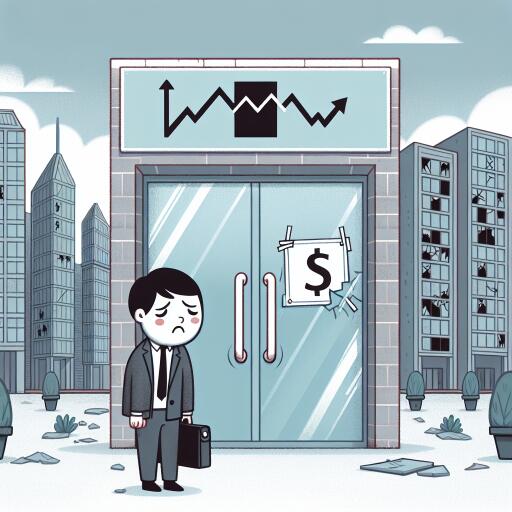More Chinese Property Companies Delist from Domestic Stock Exchange
The real estate sector in China, once a booming engine of the country’s economic growth, is currently facing a profound crisis, prompting a wave of delistings from the domestic stock exchanges. A growing number of Chinese property developers are withdrawing from the Shanghai, Shenzhen, or Hong Kong stock exchanges, further compounding the challenges the industry has faced since the previous year. These moves highlight the increasing financial distress within China’s real estate market, which has significant implications for the broader economy.
One notable case is the Jiangsu Zhongnan Construction Group, which was listed on the Shenzhen Stock Exchange in March 2000. On May 8, the company’s share price continued to plummet, dropping below 1 yuan (14 cents) for 20 consecutive trading days—a critical threshold signaling potential delisting. Shanghai Shimao Co., Ltd., another prominent developer listed in 1994, faced a similar fate as its shares also fell below the 1 yuan mark without recovery, leading to its retreat from the market.
Prior to the 2022 sales plummet, both companies boasted annual sales surpassing 100 billion yuan ($13.8 billion). Despite efforts to salvage their businesses through asset transfers and increased executive stakes, these measures proved insufficient. Additionally, more than ten real estate companies, including Country Garden, suspended trading on the Hong Kong Stock Exchange due to delays in publishing their annual performance reports for 2023. A prolonged suspension could lead these firms to delist as well.
The growth trajectory of China’s real estate sector, highlighted by the rise of “hundred-billion-yuan real estate enterprises,” demonstrates the scale of its expansion over the past decade. From a milestone in 2010, when China Vanke became the first Chinese real estate company to hit 100 billion yuan in annual sales, the industry saw a peak of 43 such powerhouses by 2020. However, the combination of the COVID-19 pandemic, stringent zero-COVID measures, and regulatory crackdowns on speculation and financing practices have significantly dampened market activity. By 2023, this number dwindled to a mere 12.
The start of 2024 has brought no relief, with real estate sales continuing their downward spiral. A report from property research firm CRIC indicates a 46.8 percent year-on-year decline in sales across the top 100 real estate companies in the first four months. In a surprising turn, some first-tier cities like Beijing have begun relaxing home-buying restrictions for the first time in 13 years, signaling a potential shift in policy to rejuvenate the market. Other major cities, including Guangzhou, Tianjin, and several provincial capitals, have followed suit by easing restrictions on property purchases.
The depth of China’s real estate crisis is profound, with some experts, such as Mr. Zhang, arguing that its impact rivals that of the subprime mortgage crisis in the United States in 2008. “The real estate crisis is triggering a financial crisis, and everyone from the Chinese government to the local people is unlikely to be immune to the fallout,” he remarked. This situation underscores the critical role of real estate in China’s economy and the challenging path ahead for its recovery.
